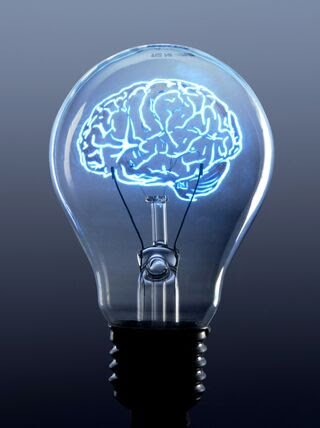One bout of aerobic exercise boosts attention and concentration for two hours
The link between regular aerobic exercise, better brain functioning, and slower cognitive decline as we age is well established. But how does a single cardio workout affect attention, concentration, learning, and memory functions from hour-to-hour as we go about our daily lives?
Anecdotally, from a meta-cognitive perspective, when I “think about my thinking” and how aerobic exercise affects how my brain works, I realised many years ago that my thinking is at its best during the window of time just after completing some moderate-to-vigorous physical activity (MVPA).
Because exercise helps me think better, my daily writing routine almost always involves crafting a bleary-eyed rough draft in the predawn hours while sipping coffee, taking a computer break to go for an hour-long jog at sunrise, and then spending about another two hours of “supercharged brainpower” time polishing a final draft while my thinking is crystal clear, and there’s no brain fog.
If my brain were a light bulb, it gets amped-up with mega-wattage just after a morning workout and gets dimmer* as the day turns to night; after dusk, my low-powered mind can’t handle much heavy lifting.
Is there a downside to thinking noticeably faster and better after a workout? Yes. If for some reason, I’m unable to spend my most laser-focused time of day finishing a polished draft immediately after a workout, the same mental workload that takes less than two hours of superfluid, lightning-fast thinking to complete after a jog can take over four hours of laborious, low-wattage cognitive functioning later in the day—when my post-workout, turbocharged surge of brainpower has fizzled out.
Apparently, a growing body of empirical evidence suggests that I’m not alone when it comes to experiencing better brain function in the 120 minutes or so after completing a cardio workout.
A recent systematic review of “the effects of a single exercise workout on memory and learning functions” by Peter Blomstrand and Jan Engvall concludes that “aerobic exercise for two minutes to one hour at moderate-to-high intensity improved attention, concentration, and learning and memory functions for up to two hours.” These findings (Blomstrand & Engvall, 2020) were published on August 8 in the Translational Sports Medicine journal.
This systematic review of over a dozen different studies also shows that “aerobic exercise improves the learning ability and storage in memory when exercise is performed before and in close connection with the learning activity.”
In a press release about this systematic review, Dr. Blomstrand, M.D., Ph.D., of County Hospital Ryhov and Jönköping University in Sweden summed up his findings in four words: “Exercise makes you smart.”
Blomstrand and Engvall’s systematic review is rooted in a two-pronged research question: (1) How long should a single “brain-boosting” bout of aerobic exercise last?; (2) What intensity of cardiorespiratory exertion has the most beneficial effects on learning and memory functions?
Altogether, the 13 studies cited in this systematic review involved 1,067 young adults (18 to 35 years of age) who participated in 2-to-60 minutes of moderate-to-vigorous walking, running, or bicycling before performing cognitive tests that measured “attention, concentration, working memory, short‐term memory, long‐term memory, verbal fluency, or the capability to plan and solve problems.”
After a detailed analysis of all the data from each study, Blomstrand and Engvall concluded:
“This systematic review strongly suggests that aerobic, physical exercise followed by a brief recovery before encoding improves attention, concentration, learning, and memory functions in young adults. The results of this review may have important education‐related implications.”
Why does a single bout of aerobic exercise improve cognitive functions for up to two hours? Several mechanisms might explain why acute exercise improves learning and memory functions immediately after a workout.
Although these findings are correlative, the authors speculate that the cognitive improvements from an acute bout of exercise may be caused by things like exercise‐induced long‐term potentiation (LTP), plasticity‐related proteins that tag nearby synapses, increasing expression of dopamine along with enhanced attention and memory encoding through modulation of dopamine transmitters.
Blomstrand and Engvall also speculate that exercise-induced increases of cAMP‐responsive element-binding protein‐1 (CREB‐1) and brain‐derived neurotrophic factor (BDNF) may promote better cognitive functioning. That said, the authors conclude: “In summary, several mechanisms have been suggested, but more research is needed to understand how morphological, neurochemical, and electrophysiological alterations in various regions interact.”
*Blogger’s note: Because I’m an extreme “early bird” who is typically up by 4 a.m. and asleep by 9 p.m., morning exercise fits my quirky chronobiology and facilitates thinking best before noon. However, if you’re a “night owl” chronotype—who prefers working out later in the day—you’ll reap the same cognitive benefits from an evening workout while burning the midnight oil. According to this systematic review, it doesn’t matter what time of day you exercise; the boost in brainpower will be felt for up to two hours after a cardio workout.
References
Peter Blomstrand and Jan Engvall. “Effects of a Single Exercise Workout on Memory and Learning Functions in Young Adults—A Systematic Review.” Translational Sports Medicine (First published: August 08, 2020) DOI: 10.1002/tsm2.190
Original Source: https://www-psychologytoday-com.cdn.ampproject.org/





